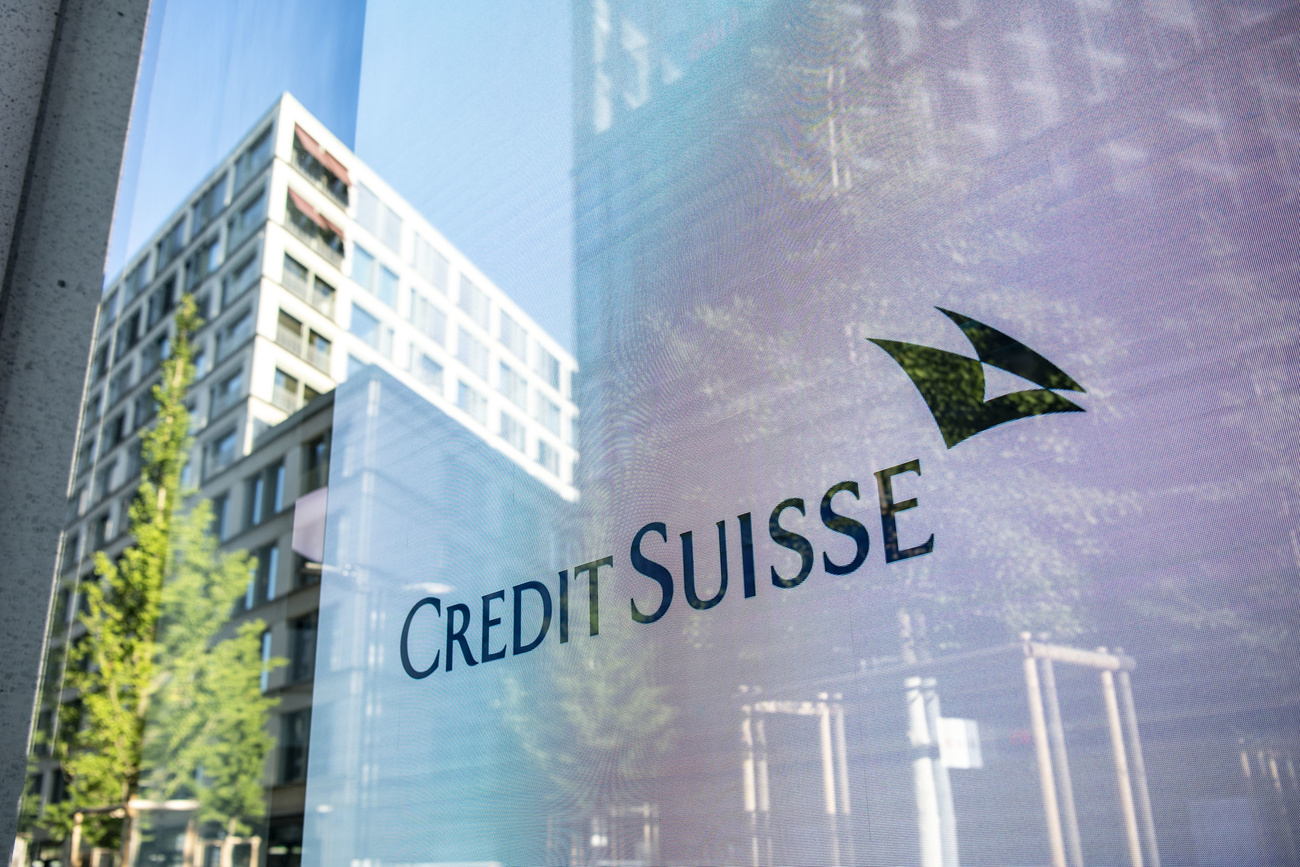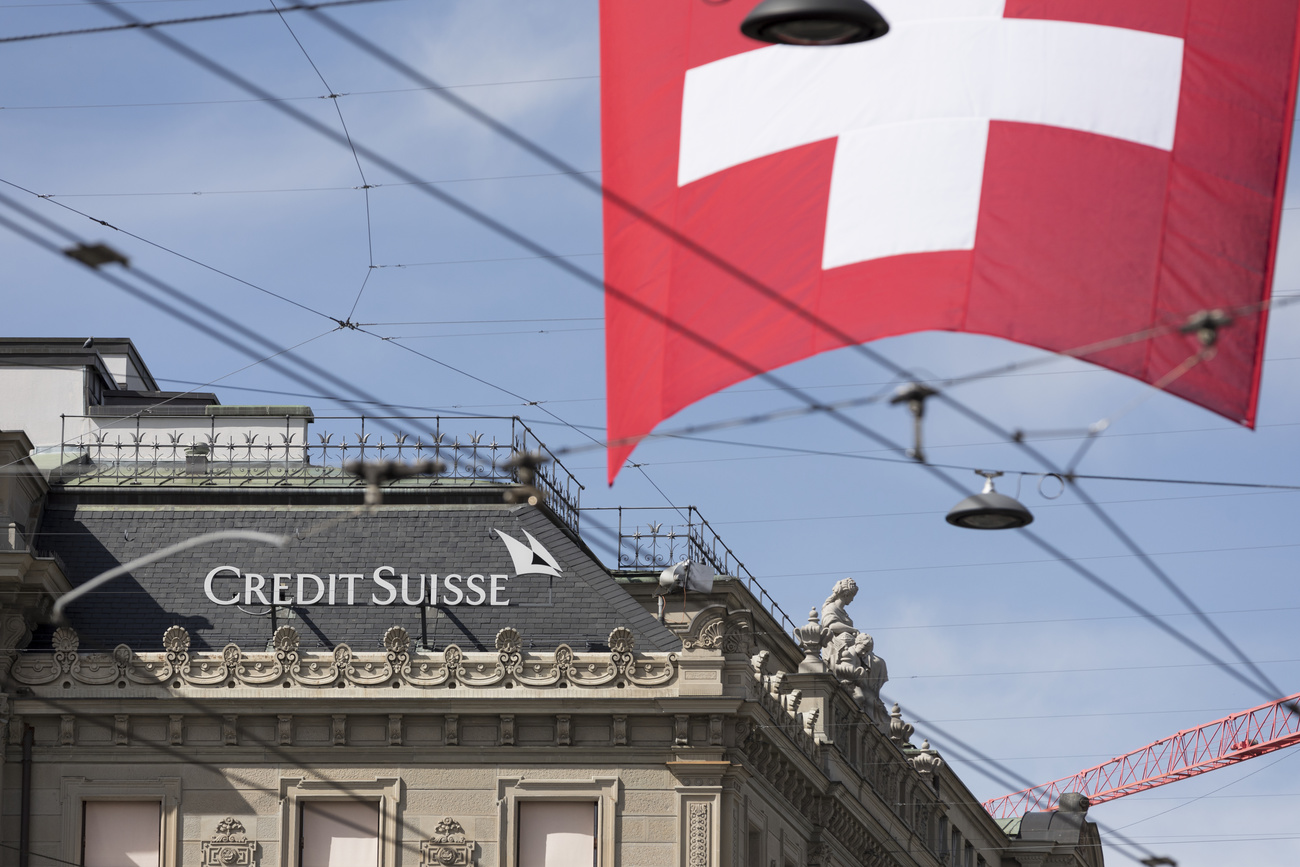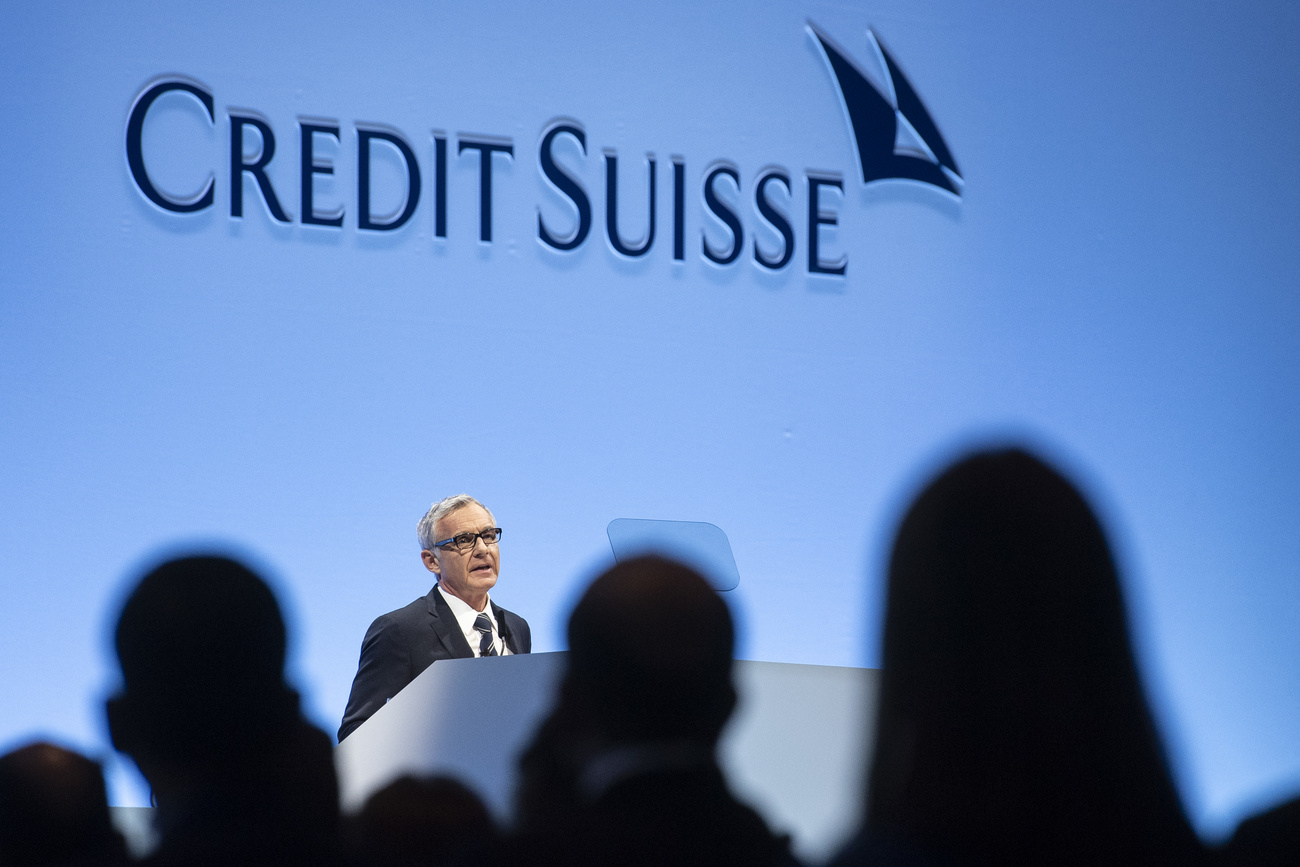Credit Suisse angers investors with five-year ‘hard grind’ on Greensill losses

A year on from Greensill Capital’s collapse, payments to investors in funds linked to the supply chain finance firm have slowed to a trickle.
The funds held $10bn (CHF9.35bn) of assets, mostly sourced from Credit Suisse’s prized ultra-rich clients, and invested in notes provided by Greensill, which in turn lent money to a range of companies. Credit Suisse has so far returned $6.7bn to investors, with a further $600mn held in cash. The bank is now focused on recouping as much of the remaining $2.7bn as it can.

But the process has entered a new attritional phase, focused on tortuous debt renegotiations, lengthy legal cases and disputed insurance claims.
“We’re now down to the hard core where it’s going to take time,” said a person involved in the recovery process. “I don’t think there will be a huge amount of money coming in for a while.”
The bank revealed last week that the 1,200 investors trapped in its funds were unlikely to recoup their losses for at least another five years, if at all.
“We have seen an absolute change in the mood among investors in recent days – the reaction to Credit Suisse’s latest disclosure has been one of fury, particularly as they gave the bank the benefit of [the] doubt,” said Natasha Harrison, managing partner of Pallas law firm, which is representing fund investors preparing litigation against Credit Suisse. “Nobody is going to be prepared to wait five years to get their money – and even then there is no certainty they will get it all back.”
Despite anger from clients, Credit Suisse quickly decided it would not make up the shortfall, in part because executives feared it would set a precedent. If the bank offered to underwrite clients’ investment losses, it would lead to a large increase in the bank’s regulatory capital requirements.
Over the past year, various proposals have been considered that might allow customers to draw a line under the debacle, according to people involved in the discussions.
In one recent idea, customers would have been offered tradable instruments backed by the proceeds of the recovery. Those who were willing to wait could recoup more of their investment, while those in need of short-term cash could sell the instruments at a discount.
However, none of the proposed schemes has progressed beyond the concept stage, owing to their complexity, according to people involved in the plans. The bank is therefore working solely on recovering the funds and repaying customers as the cash slowly drips in.
“None of these schemes has gotten anywhere, so it’s back to grinding negotiations with debtors,” said one person involved. The bank did offer affected clients free banking services in an initiative known as Project Sunflower, which cost Credit Suisse $30mn in its first few months.
Four buckets
The $10bn of assets held by Credit Suisse made up the lion’s share of the $17.7bn lent out by Greensill by the time it went into administration last year – $9.3bn of that is still to be recouped, according to an administrator’s report last week.
Credit Suisse divides the $2.7bn it still has to recover into four buckets: $1.3bn owed by GFG Alliance, the group of businesses run by UK steel magnate Sanjeev Gupta; $690mn owed by Bluestone Resources, a coal-mining company owned by West Virginia governor Jim Justice; $440mn owed by collapsed US building company Katerra; and about $300mn owed by a collection of smaller debtors who have shown a lack of willingness or ability to repay.
Much of Credit Suisse’s early negotiations focused on dealing with Gupta, the Indian-born industrialist, whose sprawling metals empire employs thousands of workers around the world and whose growth was turbocharged by more than $5bn borrowed from Greensill.
Of the $1.3bn GFG owes to Credit Suisse, $274mn is related to its Australian assets, the more profitable part of the group.
Under a deal struck between Gupta and the Swiss bank in October, GFG paid back a third of the money owed by the Australian business and agreed to pay the rest on a monthly basis with interest by mid-2023.
But much of the remaining $950mn is owed by its struggling UK operations, which Credit Suisse negotiators have discounted as being close to worthless. The bank has therefore begun filing insurance claims to recover losses.
Insurance was crucial to Greensill’s securitisation machine. Indemnifying against the risk of non-payment by borrowers, it allowed the debts to be presented to investors as near risk-free.
Credit Suisse had filed 11 claims for non-payment by the end of February, covering a total of $1.5bn of its exposure. But Japanese group Tokio Marine, Greensill’s credit insurer, said last week it deemed policies covering the lender void as they had been “fraudulently obtained”. Credit Suisse called that assertion “unfounded”.
‘Unique case’
The legal status of the disputed insurance is to be tested for the first time in a case running through the Australian courts, bringing together a handful of Greensill-related claims, including a couple from Credit Suisse and a $146mn claim from White Oak, an investment business.
Richard Wulff, executive director at International Credit Insurance and Surety Association, a trade body, stressed it was a “unique case, in lots of different aspects . . . the risks involved, the way the risk was structured, the length of the chain”.
The fate of this crucial insurance cover will rest, in part, on the practices of a small, Sydney-based credit underwriting firm, The Bond & Credit Co. Having previously written policies on behalf of its parent Insurance Australia Group, BCC was acquired by Tokio Marine in 2019.
The following year, BCC fired one of its executives for exceeding his underwriting authority and served notice on Greensill’s insurance, which by the end amounted to $10bn worth of cover.
IAG has estimated its liabilities from the Greensill policies, including legal costs, at $485mn but expects the same in reinsurance recoveries. It has previously said any exposure net of reinsurance had been passed to Tokio Marine in the 2019 deal. The Japanese group said this week it would “vigorously defend” any claims and continues to maintain it will not suffer a material impact from the Greensill fallout.
Legal filings show that IAG has raised a number of concerns over the ways that policies agreed by BCC were worded and extended – including that IAG and reinsurer Scor “did not approve of the wording and structure” of one of Greensill’s key insurance policies. The companies all declined to comment.
Bluestone is another debtor with whom Credit Suisse’s negotiations stalled. At one point, talks were making so little progress that the bank considered resorting to legal action against the mining group and its millionaire politician owner.
But in September, Bluestone proposed paying the bank $300mn and offering half the proceeds of the sale of his mining business to settle the $690mn he owed.
The proposal prompted talks to resume. In a statement to the Financial Times, Bluestone’s lawyer said: “Bluestone has reached an agreement in principle with Credit Suisse regarding the Greensill matter that is in the final stages of being documented.”
However, the bank has kept its options open by filing insurance claims on some of the Bluestone debt.
Personal animosity
With Katerra, which filed for bankruptcy with more than $1bn of liabilities last June, Credit Suisse has taken a different approach. The bank has launched legal action against SoftBank, the Japanese conglomerate whose $100bn Vision Fund backed Katerra.
The case centres on a 2020 deal in which SoftBank agreed an emergency cash injection into Greensill, which was intended to cover the debts at Katerra. The FT subsequently revealed that the cash never reached the Credit Suisse funds.
The Swiss bank is now seeking to establish what SoftBank executives, including chair and chief executive Masayoshi Son, knew about the deal by subpoenaing documents through California and Arizona courts.
SoftBank has attempted to block the request and the next hearing is due to take place on May 20. Credit Suisse has informed SoftBank that it intends to launch proceedings in the English High Court later this year.
While an out-of-court settlement is the most likely eventual outcome, the personal animosity between Thomas Gottstein, the Credit Suisse chief executive, and Son means it is not a foregone conclusion.
SoftBank was formerly a top Credit Suisse client, but the bank has alleged Son misled Gottstein over the Katerra deal, and the Swiss banker continues to harbour deep resentment over the affair, according to people close to him.
The remaining $300mn from the Greensill funds still to be recouped is made up of debt from an eclectic group of smaller companies. Credit Suisse has little confidence in reclaiming much of the outstanding debt and has already begun filing insurance claims.
Among the hold-outs are companies linked to Andrew Foreman, a Yorkshire businessman who founded the Beverley Polo Club, and a Chester-based business that provides services for people with learning disabilities and is owned by a neighbour of Greensill founder Lex Greensill.
None of the hold-outs or debtors responded to requests for comment, bar Bluestone and GFG, which declined to comment.
Credit Suisse’s debt recovery team expects these cases to drag on. “There’s a lot of detail in this, but the bottom line is it will be a hard grind,” said a person involved in the recovery.
“We know we’re not going to get 100% back but how much is very difficult to work out.”
Copyright The Financial Times Limited 2022

In compliance with the JTI standards
More: SWI swissinfo.ch certified by the Journalism Trust Initiative













You can find an overview of ongoing debates with our journalists here . Please join us!
If you want to start a conversation about a topic raised in this article or want to report factual errors, email us at english@swissinfo.ch.